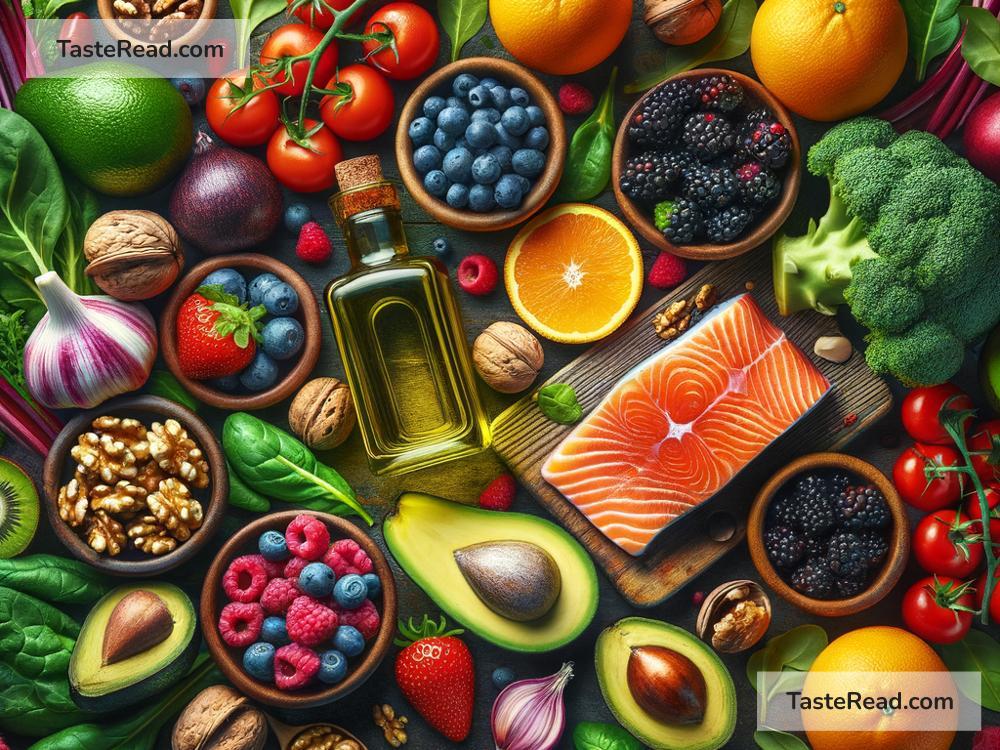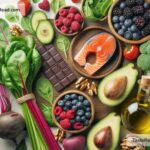Foods for Improving Vascular Permeability: A Simple Guide to Healthier Blood Vessels
Your vascular system, which includes your heart, veins, and arteries, plays a crucial role in pumping blood and distributing oxygen and nutrients throughout your body. One key aspect of this system is vascular permeability, which refers to how easily substances like nutrients, waste products, and fluids pass through your blood vessel walls.
Maintaining healthy vascular permeability is crucial for overall health. Poor vascular permeability can increase inflammation, swelling, and the risk of chronic conditions like heart disease and diabetes. Luckily, the foods we eat can make a big difference! In this blog, we’ll look at foods that can help improve vascular permeability in simple and easy-to-understand terms.
Why Vascular Permeability Matters
Your blood vessels are like highways that allow blood to travel to different parts of your body. When vascular permeability is balanced, it maintains a healthy flow of nutrients and prevents damage to your blood vessels. However, if permeability becomes too high or low, it can lead to problems such as:
– Fluid build-up or swelling: Excess fluids can leak into surrounding tissues and cause inflammation.
– Poor circulation: Reduced nutrient and oxygen delivery can harm tissue health.
– Risk of chronic disease: Unhealthy blood vessels are linked to conditions like high blood pressure, diabetes, and even Alzheimer’s.
The good news? Making smart choices about what you eat can help keep your vascular system in peak condition!
Foods That Support Healthy Vascular Permeability
Here’s a list of foods that improve vascular health and permeability.
1. Leafy Greens (Spinach, Kale, Swiss Chard)
Leafy greens are rich in nitrate, which boosts your arteries’ ability to relax and widen. This process enhances blood flow and prevents stiffness in your vessel walls. These foods are also packed with antioxidants like vitamin C and vitamin E, which reduce inflammation in blood vessels.
Simple Tip: Add a handful of spinach to your smoothie or enjoy a kale salad at lunch.
2. Berries (Blueberries, Strawberries, Raspberries)
Berries are powerhouses of anthocyanins, a type of antioxidant that strengthens blood vessel walls. These compounds also improve circulation and reduce oxidative stress, preventing your arteries from becoming weak or clogged.
Simple Tip: Top your oatmeal with fresh berries or blend them into your yogurt for a heart-healthy snack.
3. Fatty Fish (Salmon, Mackerel, Sardines)
Fatty fish are loaded with omega-3 fatty acids, which are essential for reducing inflammation and improving blood vessel health. Omega-3s also help regulate vascular permeability by preventing cells in your blood vessels from becoming too “leaky.”
Simple Tip: Aim to eat fatty fish twice a week, or try a fish oil supplement if you’re not into seafood.
4. Citrus Fruits (Oranges, Grapefruits, Lemons)
Citrus fruits are packed with vitamin C, which plays a key role in maintaining healthy blood vessels. Vitamin C strengthens vessel walls, reduces inflammation, and prevents excessive permeability.
Simple Tip: Squeeze fresh lemon juice over your salad or enjoy a glass of orange juice with breakfast.
5. Garlic
Garlic contains allicin, a compound that improves blood flow and reduces inflammation. Regular consumption of garlic has been shown to help relax blood vessel walls and regulate vascular permeability.
Simple Tip: Add minced garlic to soups, sauces, or roasted vegetables for extra flavor and health benefits.
6. Whole Grains (Oats, Quinoa, Brown Rice)
Whole grains contain fiber, which is important for managing blood pressure and reducing inflammation in blood vessels. In addition, whole grains like oats contain beta-glucans, a type of soluble fiber that can improve overall blood vessel health.
Simple Tip: Swap white bread and rice for whole-grain versions to add more fiber to your meals.
7. Turmeric
Turmeric is rich in curcumin, a compound known for its anti-inflammatory properties. Curcumin helps protect blood vessels from damage and regulates their permeability, keeping your vascular system functioning smoothly.
Simple Tip: Sprinkle turmeric powder into soups or teas, or add it to marinades for a kick of flavor.
8. Nuts and Seeds (Almonds, Walnuts, Chia Seeds, Flaxseeds)
Nuts and seeds are excellent sources of healthy fats, vitamin E, and minerals like magnesium, all of which improve blood vessel health. Magnesium helps relax blood vessels and improves circulation, while vitamin E protects vessel walls from inflammation.
Simple Tip: Snack on a handful of mixed nuts or sprinkle chia seeds over your smoothie bowl.
9. Green Tea
Green tea is loaded with catechins, a type of antioxidant that improves vascular health by reducing inflammation and supporting proper permeability. Drinking green tea regularly can help relax blood vessels and improve blood flow.
Simple Tip: Replace sugary drinks with unsweetened green tea to enjoy its health benefits.
Small Changes Lead to Big Benefits
Improving vascular permeability doesn’t require drastic changes in your diet. Simply incorporating more of these foods into your meals can boost your overall health and keep your blood vessels strong and functioning properly.
Remember, a balanced diet paired with regular exercise, hydration, and stress management can go a long way in supporting your vascular health. The foods mentioned above are not magic pills, but they can significantly contribute to keeping your arteries and veins in great shape.
Start small—swap one snack or side dish with a healthier option this week, and add more heart-healthy foods over time. Every bite you take toward improving vascular permeability brings you closer to a healthier, happier you!


